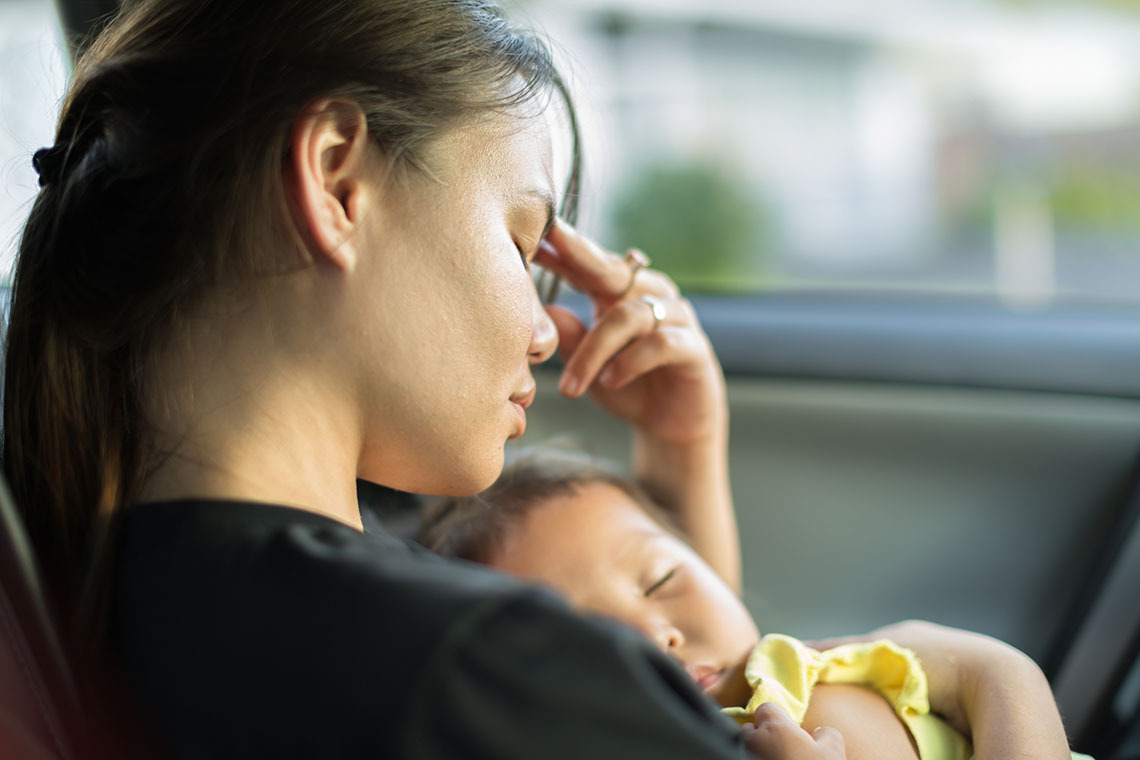Postpartum Depression Resources for New Moms
Postpartum depression is a mental health condition that affects many new mothers, often occurring in the weeks or months following childbirth. While bringing a new life into the world is often seen as a joyous occasion, for some women, this period is marked by overwhelming feelings of sadness, anxiety, and exhaustion. Fortunately, there are treatment options available, including therapy, medication, and support groups, which can help affected mothers navigate this challenging time and regain their well-being.
Understanding what postpartum depression is, recognizing its symptoms, and exploring the treatment options available are crucial steps in supporting yourself or those experiencing this condition.
Postpartum Depression: Symptoms and Causes
The Mayo Clinic discusses what postpartum depression is, how it occurs, and when a mother should visit a doctor.
What Is Postpartum Depression?
Find out about the causes, symptoms, and treatment options for postpartum depression from the Cleveland Clinic.
Postpartum Support International: Get Help Now
PSI offers information here on a variety of support options for individuals and families suffering from postpartum depression.
Everything You Need to Know About Postpartum Depression
Anyone looking to learn anything about this condition, including treatment options and how to find help, can learn more from this Healthline article.
Interpersonal Psychotherapy for Postpartum Depression
This research study examines the use and effectiveness of psychotherapy for postpartum depression.
Understanding Postpartum Depression Therapy
Therapy can be a valuable tool for women struggling with postpartum depression.
Baby Blues and Postpartum Depression: Mood Disorders and Pregnancy
Doctors Lauren Osborne and Lindsay R. Standeven talk about what women should know about baby blues, postpartum psychosis, and postpartum depression in this article from Johns Hopkins Medicine.
Postpartum Depression: Who Is at Risk?
Some people have higher chances of experiencing postpartum depression than others.
Dealing With Postpartum Depression
While it's important to talk to your doctor if you're experiencing symptoms of postpartum depression, there are also some strategies you can try at home to help yourself feel better.
Five Postpartum Depression Self-Care Tips
From forgiving yourself to prioritizing your time, this page contains valuable self-care tips to help people manage postpartum depression.
Mapping Global Prevalence of Depression Among Postpartum Women
This research study examines the most recent literature on the incidence and distribution of postpartum depression globally.
Tips for Families Struggling With Postpartum Depression
Tuscon Medical Center talks about the different ways to help a loved one dealing with postpartum depression in this article.
Strategies to Reduce Your Risk of Postpartum Depression
Talkiatry shares information about the strategies you can use to catch postpartum depression early and manage its symptoms.
17 Tips for How to Help Your Wife With Postpartum Depression
A new mother's postpartum depression can leave her spouse feeling helpless and frustrated, but there are some things that partners can do to help.
Feeling Depressed After Childbirth
There's a difference between the baby blues and postpartum depression, and this National Health Service article helps to explain that clearly.
Potential Biological Cause for Postpartum Depression Found
Researchers have found that an issue with how the body cleans up cellular debris could contribute to the development of postpartum depression.
Perinatal Depression and Risk of Mortality
This study published in the British Medical Journal looks at the risk of death for women with perinatal depression.
New Treatment for Postpartum Depression Offers Hope, but the Stigma Attached to the Condition Still Lingers
The social stigma of having postpartum depression can prevent mothers from getting the help they need, even as more treatments are being developed that could make their lives better.
The Difference Between Postpartum Depression and Postpartum Psychosis
While many women experience postpartum depression, fewer will experience postpartum psychosis, an even more dangerous mental health issue.
Postpartum Depression and Anxiety
Postpartum moms may experience depression, anxiety, or both, and cognitive behavioral therapy can help to manage these issues.
How Long Does Postpartum Depression Last?
People with postpartum depression can experience symptoms for months or even years, especially if they aren't diagnosed and treated promptly.
Social Support and Online Postpartum Depression Discussion Groups: A Content Analysis
This research paper looks at the usefulness of online support groups for people struggling with postpartum depression.
Postpartum Depression Might Feel Like it Will Last Forever, but New Treatments Are Here to Help
The development of a new medication for postpartum depression may be a sign that more and more effective treatments could be on the horizon.
Signs of Postpartum Depression
Learn about the early warning signs of postpartum depression that some people might ignore, such as mood swings and poor appetite, in this WebMD article.
Is Postpartum Depression Different From Depression Occurring Outside of the Perinatal Period?
Researchers look at whether postpartum depression is different enough from major depressive disorder to make it a separate disorder.
Postpartum Depression and its Long-Term Effects on Children
Postpartum depression doesn't only affect mothers; it can also have negative effects on their children.
Postnatal Depression in Co-Parents: Ten Things You Should Know
While postpartum depression most directly affects mothers, their co-parents can also struggle with mental health issues after a new baby arrives.




